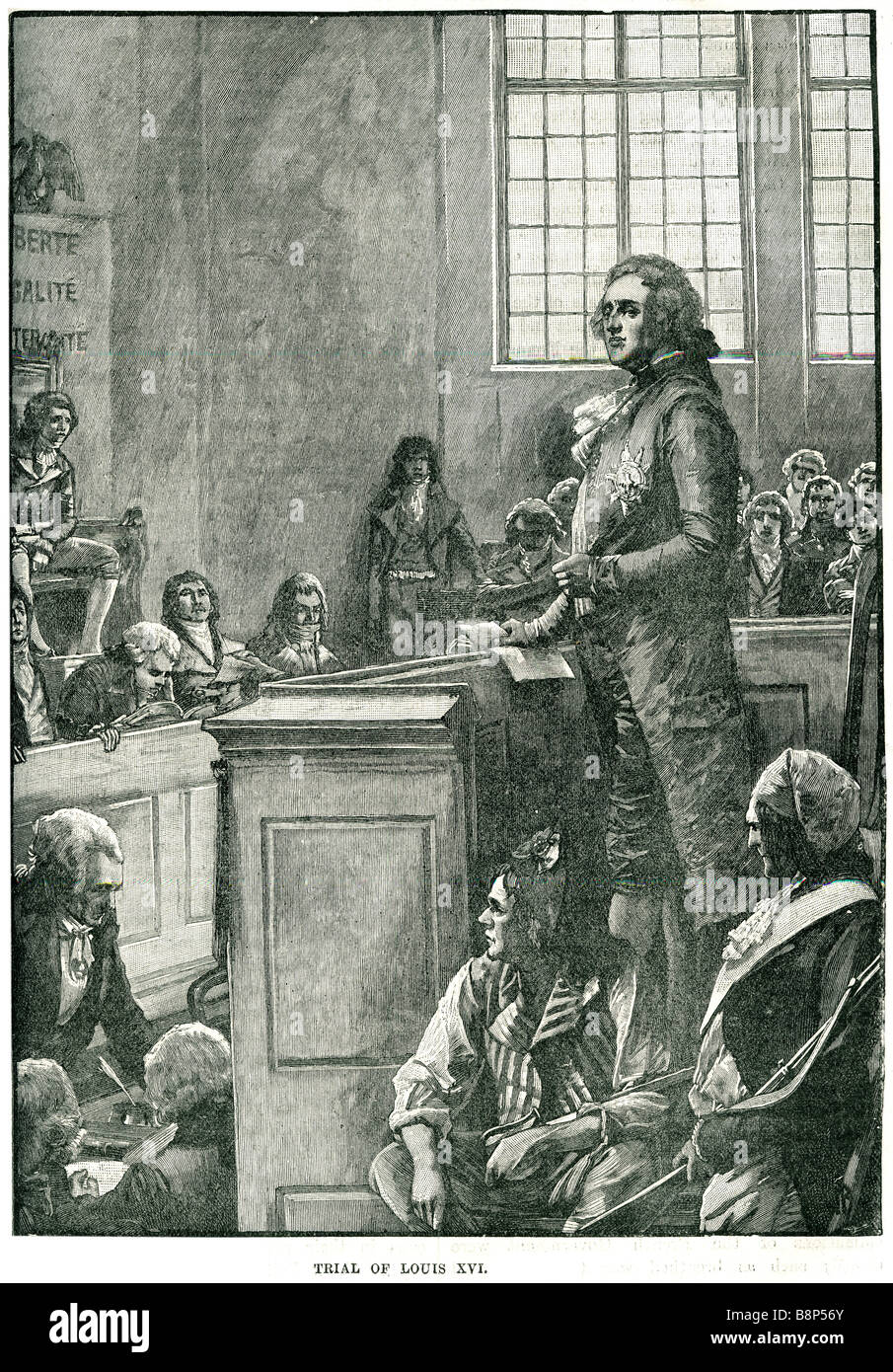trial louis xvi Louis-Auguste de France 23 August 1754 – 21 January 1793 King French

Image details
Contributor:
19th era / Alamy Stock PhotoImage ID:
B8P56YFile size:
53.7 MB (9.5 MB Compressed download)Releases:
Model - no | Property - noDo I need a release?Dimensions:
3617 x 5194 px | 30.6 x 44 cm | 12.1 x 17.3 inches | 300dpiMore information:
Louis XVI or Louis-Auguste de France (23 August 1754 – 21 January 1793) ruled as King of France and of Navarre from 1774 until 1791, and then as King of the French from 1791 to 1792. Suspended and arrested during the Insurrection of 10 August, he was tried by the National Convention, found guilty of treason, and executed by guillotine on 21 January 1793. He was the only king of France to be executed. Although Louis was beloved at first, his indecisiveness and conservatism led some elements of the people of France to eventually view him as a symbol of the perceived tyranny of the Ancien Régime. After the abolition of the monarchy in 1792, the new republican government gave him the surname Capet, a reference to the nickname of Hugh Capet, founder of the Capetian dynasty, which the revolutionaries wrongly interpreted as a family name. He was also informally nicknamed Louis le Dernier (Louis the Last), a derisive use of the traditional nicknaming of French kings. Today, historians and French people in general have a more nuanced view of Louis XVI, who is seen as an honest man with good intentions, but who was probably unfit for the herculean task of reforming the monarchy, and who was used as a scapegoat by the revolutionaries. His cousin, the Duke of Orleans was the one responsible for spreading rumors about Louis' wife which caused people to get very angry. Louis was officially arrested on 13 August and sent to the Temple, an ancient Paris fortress used as a prison. On 21 September, the National Assembly declared France to be a republic and abolished the monarchy. The Girondins were partial to keeping the deposed king under arrest, both as a hostage and a guarantee for the future. The more radical members – mainly the Commune and Parisian deputies who would soon be known as the Mountain – argued for Louis's immediate execution. The legal background of many of the deputies made it difficult for a great number of them to accept an execution without due process of so